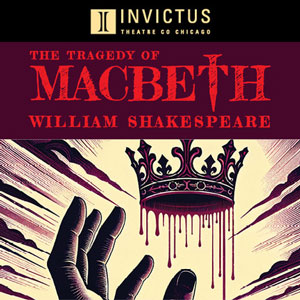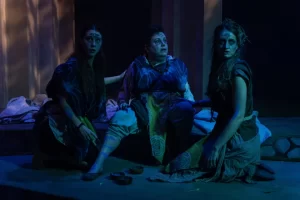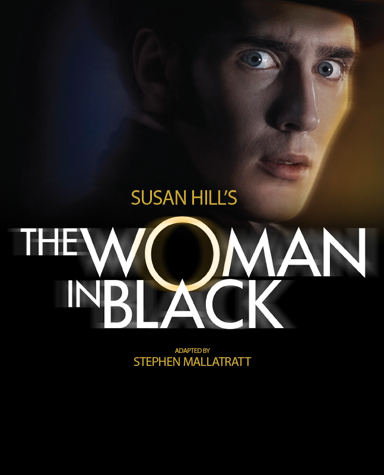
 *** This autumn, director Sarafina Vecchio and the Invictus Theatre Company have chosen to feature one of Shakespeare’s most eminent tales of political violence and one man’s desire to become king by any means possible. And it is no coincidence that opening night of “The Tragedy of Macbeth” took place on the eve of the 2024 elections.
*** This autumn, director Sarafina Vecchio and the Invictus Theatre Company have chosen to feature one of Shakespeare’s most eminent tales of political violence and one man’s desire to become king by any means possible. And it is no coincidence that opening night of “The Tragedy of Macbeth” took place on the eve of the 2024 elections.
The action centers on the character of Macbeth (Mikha’el Amin), a Scottish mormaer, or chief, in the province of Moray, in northern Scotland. This is a man whose ambition knows no bounds. He has no compunction about destroying rivals who might get in the way of achieving the Scottish throne. His thirst for power is urged on by his equally bloodthirsty wife Lady Macbeth (Carolyn Kruse), who equates her husband’s wild ambition to rule over others as being indicative of his manhood. Shakespeare well understood human nature, for this is a tale not just about one man’s rise to power but also about how Macbeth’s followers are initially taken in by his seeming respectability and virtuosity. We see how Macbeth kills off King Duncan and sets up those loyal to him to do his dirty work while trying to appear above the fray. Of course, there is also Macbeth’s fall from grace and into madness, ruin, and death. But initially who would have imagined that such an appealing and charismatic individual could be so appalling? How could he have such a horrible dark side? Eventually those who have given him the benefit of the doubt start to see through him.
This blight on Scottish history is foretold by three witches (Christy Arington, Tessa Dougherty, and Julia Rowley), who open the show. We can all repeat their famous lines, “Fair is foul, and foul is fair”, which portends a story that focuses on the extent to which evil disguises itself as the good. Just as much as this is a show about masking one’s true self and one’s ardent desire for unchecked political power, it is also a tale grounded in mysticism. There is another world out there in the great beyond that is unseen and unknown, where magic is real and ghosts can thrive. Perhaps the witches have an ability to know and sense higher truth and grasp human history from a perspective larger than our own.
The performances by Amin as Macbeth and Kruse as Lady Macbeth are stellar and convincing. Casting is excellent! Additional actors include Michael B. Woods (Macduff), Diego Longoria (Malcolm), Joshua Razavi (Lennox), Aimee Kleiman (Rosse), Charlie Diaz (Banquo), Amber Dow (Servant), Joseph Beal (Seyton), Robert Koon (Actor 1: Duncan/Murderer 2/Old Siward), Michaela Shapiro (Actor 2: Kid Macduff/Young Siward/Lord/Soldier), Whitney Minarik (Actor 3: Captain/Lady Macduff/Doctor/Lord), and Layke Fowler (Actor 4: Lords/Soldiers/Fleance). Note that Vecchio is not just the director of this production but has adapted Shakespeare to suit, making it perhaps a tad more humorous in spots to please a contemporary audience. She has also included the use of some aisles for the entrance and exit of various actors. My guest and I were seated in the first row, which was a level off the ground with a railing right in front of us. I was particularly amazed when a character climbed up two steps from the stage and literally walked into the first row directly in front of us and climbed onto the balcony rail (with ballet slippers on). Since the row was wide, this was perfectly doable, but the action surprised us nevertheless.
A nice-sized multi-purpose set makes up some portion of the stage, consisting mostly of three steps leading up to a portico plus a large floor that provides adequate room for battle scenes. This is the province of scenic designer Manuel Ortiz. Cindy Moon’s costume design is wonderfully traditional, from the royal costumes to those of the knights. I especially liked the witches’ garb. Barbie Brown’s props design works well for this set, with trees surrounding the portico on two sides. Especially notable is all the weaponry. Above all, I want to acknowledge Jay Donley and Amber Wuttke of Violent Delights, who are fight and intimacy designers. Considering how much sword fighting, strangling, stabbing, and raw violence is in this show, these professionals had their work cut out for them.
Hannah Wien’s lighting design is good; the part that evokes mystery is done very well. However, the strobe lighting just after the beginning (with all the flashes indicating a thunderstorm) was just too intense for me. While I enjoyed the sound of the storm (thanks to Petter Wahlbäck’s sound design), the constant drumbeat between scenes only added to my overall tenseness when I just wanted to sit back in my seat and enjoy. But perhaps the most problematic issue was the presence of far too much mist in the air throughout the performance: Just when it would let up, it was cranked up again! There were many moments when I wanted to concentrate on the acting, the Elizabethan dialogue, and the storyline when the room would fill up and the mist would distract me. It was not just a matter of seeing the actors perform through the fog, but I was having a breathing issue. I first put on my material mask and then switched to my N95. And I wasn’t the only one with a problem: Several people in the audience were coughing, including my seat neighbor. I know that theatrical fog can evoke a certain ambiance, but when most of the space is in fog, something gets lost. To my mind, mist ought to be used sparingly so as to be effective. But I personally wouldn’t use it at all, considering that some of us have sensitivities like I do. Since the purpose of every play is to take the audience to a new and different place in our imagination, I never could understand why fog is essential to begin with.
In all, this is a good production that tells a tale about egomania, tyranny, and deviousness. It is not so much a matter of Macbeth’s followers being blind to evil but, rather, that they have a predisposition to think the best of others and believe that they have good intent. It should come as no surprise, then, that Macbeth eventually has his comeuppance. The fallout is that so many people’s lives have been needlessly taken and that grief is rampant among those left. And to what end? One would have hoped that the thanes had come to their senses sooner: before the bloodletting left a stain on the nation and its history.
“The Tragedy of Macbeth” is playing through December 15, 2024, at Windy City Playhouse, 3014 W. Irving Park Road, Chicago.
 General admission tickets are $38.
General admission tickets are $38.
Performance schedule:
Fridays, Saturdays, and Mondays at 7:00 p.m.
Saturdays and Sundays at 2:00 p.m.
For more information, go to: https://www.invictustheatreco.com.
To purchase tickets, visit: https://www.onthestage.tickets/show/invictus-theatre-company/.
To see what others are saying, visit www.theatreinchicago.com, go to Review Round-Up and click at ” The Tragedy of Macbeth”.






More Stories
“The Woman in Black” MILWAUKEE reviewed by Amy Menzel
“The Man Who Came To Dinner” reviewed by Julia W. Rath
” Manual Cinema’s The Magic City”